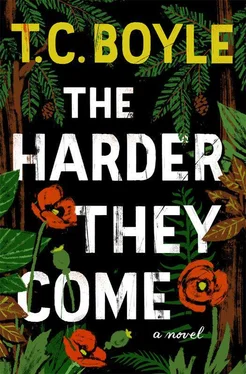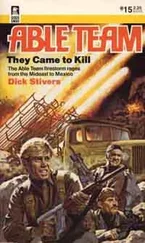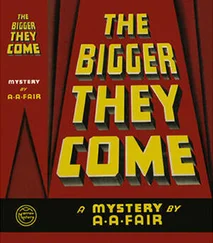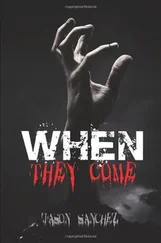“Yeah,” she said, swinging out onto the highway, “yeah, me too. But you’re going to be all right for this, aren’t you? What we discussed?”
Nothing.
“Listen, Adam—”
“Colter.”
“Colter. I need five minutes, that’s all. And then, if you want, we can go back to my place — in Willits, at the top of the canyon? — and party all we want. I’ve got wine. I can make us omelets. You like omelets?”
No response. He was rigid again, staring through the windshield as if it was the transparent lid of a coffin.
“Okay,” she said, “okay, fine. Five minutes. That’s all I ask.”
She got lucky, because when they came through the door at Animal Control, it wasn’t the girl behind the counter but a middle-aged man with dyed hair and a severe comb-over, and he was busy explaining adoption procedures to a couple his own age who sported identical his-and-hers paunches. Adam was grinning, for what reason she couldn’t fathom, except that he was drunk, he must have been drunk, but he’d roused himself when they pulled into the lot and now he edged right in, saying, “Sir? Sir, could I ask you a question?”
The couple turned to stare at him. The man behind the counter, who’d been in the midst of enumerating the virtues of a dog named Dolly, lifted his head to give him an annoyed look. “Just a minute,” he said.
“But”—and here Adam, soft-voiced to the point where you could barely hear him, calibrated his tone till it was a kind of rising whine—“I have a question, just a simple question.”
The man just blinked at him.
And her? She was making like she didn’t know him, as if they’d come in separately, two strangers interested in dogs. And cats. She went over to the brochures and made a show of selecting one of each, a pet lover who only wanted to be informed about the rules and regulations, about safety and health and the special needs of kittens and puppies.
“About spaying?” Adam said. “You do spaying here, don’t you?”
“Yes,” the man behind the counter said, “yes, of course. But if you could just wait a second until I’m done with these people, who were here before you—”
The woman gave Adam an indignant look, then turned back to the conversation. “Dolly’s housetrained, right?”
“Oh, yeah,” the man lied, because how would he know? “They all are.”
And then Adam, inserting himself between husband and wife at the counter so that each had to take a step back, let his voice go a notch higher. “How old do they have to be before you spay them?”
The Animal Control man blinked again, but he was there to inform people and the response was all but automatic. “Six months or so.”
“You use a scalpel, right? Betadine, make it nice and clean. Do you do it yourself — I mean, personally?”
That was when she drifted down along the far side of the counter and away from the little group gathered there behind her, her neck bent as if studying the brochures in her hand, and nobody even glanced at her as she ducked into the hallway, turned the handle of the door and slipped inside. She found herself in a corridor with an office of some sort on her right and an open door at the far end. She moved cautiously, a step at a time. If there was somebody back there she’d play dumb — she was looking to adopt, that was all, and was this the way to the cages? But what if it was the girl from the other day? She could be back here, she would be, dispensing kibble, filling water bowls, hosing down the floors. What then — another stare-down? Or something more, something harder, something worse? There was one thing she knew: she wasn’t leaving here without her dog. A sharp smell of urine hit her. She could hear the animals moving and rustling beyond the door, a clack of nails on concrete, a furtive yip, whining. She steeled herself and went on.
As soon as she came through the door and started down the row of cages, the dogs — there must have been forty or more — sprang up off the concrete floor, scrabbling at the wire mesh and crying out for release, but where was Kutya, where was he? They were barking now, every last one of them, raising a clamor that was sure to bring the attendants running — the girl, wherever she was, and the man from the front desk and who knew who else? “Kutya!” she called, “where are you? Come on, boy! Kutya!”
He was in the last cage down, looking cowed, as if he’d done something wrong, as if it was his fault he’d been locked away in here, and she felt sick with the thought of what he’d been put through. It was a crime, that was what it was, and she was beyond caring now — just let them try to stop her. In the next moment she had the cage door open and she was clicking the leash to his collar and bulling her way out the rear door, the one that gave onto the fenced-in courtyard and the parking lot beyond.
The dog seemed to sense her urgency and he didn’t hang back to fawn on her or lick her hand or jump up. He had his head down, his paws moving in a brisk businesslike trot, following the leash and the quick clatter of her boots around the corner of the building, across the pavement and up into the backseat of the Sentra, which was parked just out of sight of the front windows. She fell into her seat, slammed the door, her heart pounding. “Stay,” she growled at the dog. “Stay. Get down!” And then the engine fired up and she put the car in gear, telling herself to be calm, that everything was all right, just fine, no one had seen a thing, but her hand trembled on the wheel as she swerved across the lot and pulled up parallel to the front door.
He was in there still — she could see him through the near window, his scalp shining in the light. What was wrong with him? Why wasn’t he coming? She couldn’t help herself and she knew she shouldn’t do it, but she tapped at the horn, twice, two sharp little bleats, and still he stood there at the desk, apparently jawing on with the Animal Control officer when he hadn’t said twenty words to her all the way up the hill. She leaned forward. Kutya began to whine. And now she hit the horn again, more insistently this time, and saw him glance up, a confused look on his face. They were all four of them staring now and she didn’t want to do it, didn’t want to hit the horn again, but she did, grinding her palm into it.
And now there was movement, a shuffling of position as if he were swapping shirts with the couple at the counter — or dancing with them — and he was still talking, his jaw still going. What was wrong with him? She beeped again. She saw him detach himself from the little group and then he went out of her line of vision until he appeared again at the glass door, which snatched at the light as he pushed it open and came down the walk to her. But — and this was strange too, strange and maddening — he just stood there staring at the car as if he’d never seen it before. She rolled down the window. “Get in!” she said.
He just stared, gone off again.
She barked out his name—“Adam!”—even as Kutya came tumbling over the backseat and into the front where he was plainly visible and the shapes inside the building seemed to coalesce, three faces wedded in one and staring out the window at her. “Goddamn you, get in!
“Adam!” she warned, and she was half a beat from just leaving him there, dumping his pack out into the lot and turning her back on him, when his face changed and he came round the front of the car to pull open the passenger’s-side door, scoot the dog off the seat and slide in. She was already in gear, already tugging at the wheel and hitting the gas, when he turned to her, full-face, and said, “I told you, my name’s Colter .”
Читать дальше












